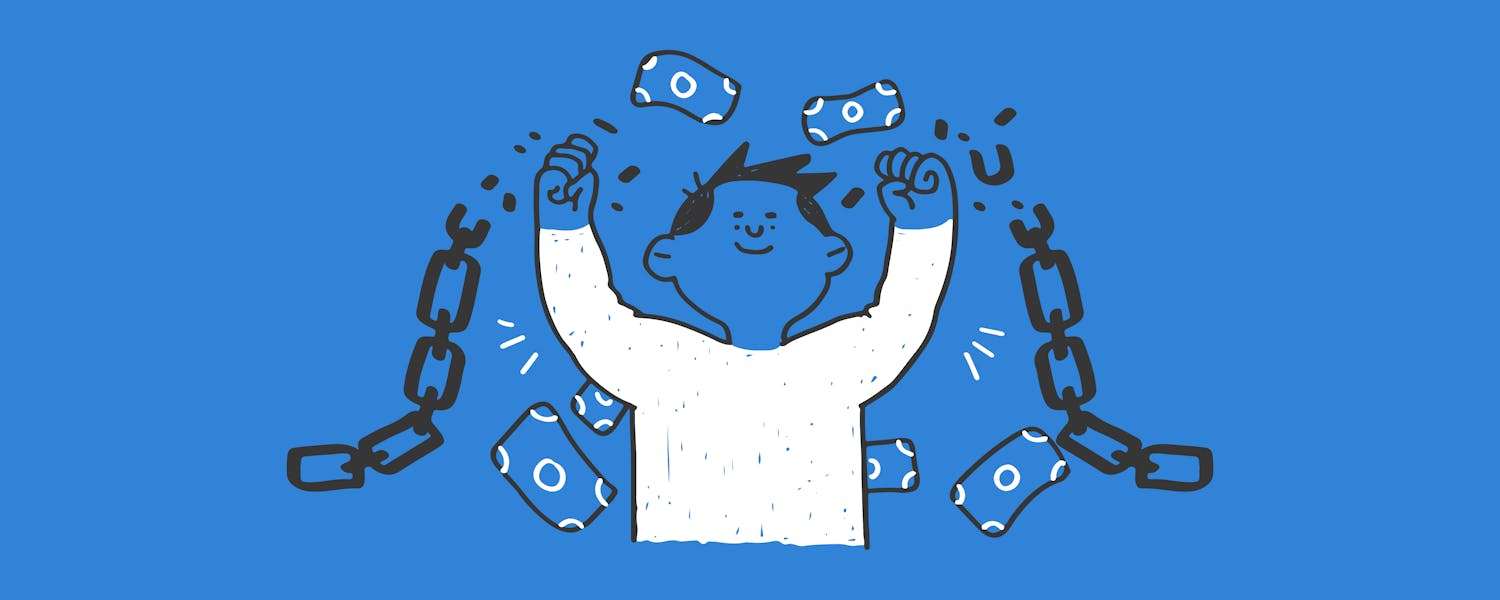What is Financial Freedom, and How Can I Get It?
A trending topic seen today is something called financial freedom. Financial Freedom is when someone is not bound by debt, can save, and sometimes retire before turning 65.
Best of all, they do not have to come from a rich family or win the lottery to make it happen.
What is Financial Freedom?
Forbes defines financial freedom as the ability to be debt free and in control of your financial decisions.
With the right tools, knowledge, and discipline, the financially independent can work when they want to, live how they want, and have a financial buffer for when the economy slows down.
Follow Your Path
Envato/adam121
Reaching financial independence is a unique experience for everyone, and what might work for one may not work for another. But that’s okay! Part of the journey is learning that there are many ways to achieve the same goal.
Step 1: Take Control
The first step to financial independence is taking control of your income and expenses.
This can be achieved through prioritizing paying off debt, saving for retirement, reducing frivolous expenses, and investing in stocks that yield results.
The simplest way to take control is with the help of a budget.
Step 2: Set Your Goals
Envato/maksymiv
When creating a budget, you should consider short-term and long-term financial goals. This includes where you see yourself in 5 years, 10 years, and reaching retirement.
With these goals in mind, you can allocate income to meet your lifetime financial goals.
Step 3: Adjusting Your Budget
Budgets should be looked at often, not just yearly, when you receive a raise.
Additionally, they should be broken down to accommodate fixed expenses, like paying rent and making car payments, and variable expenses, like dining out and buying groceries.
Ideally, you would want to start by following the 50/30/20 rule: spending half of your budget on obligations, then 20% toward savings and debt repayment, and the remaining 30% on whatever you want.
Envato/ashishk75
This kind of budget breakdown allows you to still enjoy the little things while paying down debt and investing for retirement.
Step 4: Understanding Financial Options
Before anyone can start working towards financial freedom, they must look at their financial health and plan to pay off existing debt.
While debt is inherently considered bad, not all is prejudicial to your financial health. For example, you incur hundreds of thousands of dollars in debt when you purchase a house.
But this debt is not necessarily bad. Each mortgage payment helps build equity in the property—or cash value that positively impacts your net worth.
All financial options should seek to eliminate bad debt through additional active or passive income streams.
Envato/Prostock-studio
Income is earned actively by working or passively by making money with minimal effort.
Those seeking financial freedom should create additional streams of income, preferably passive income, like:
- Royalties from written books.
- Real Estate Investment Trusts (REITS).
- Dividend earnings from Index Funds or Bonds.
- Rental income from investment properties.
Earnings from passive income can be used to pay for your luxuries rather than taking it out from what would go into savings or fixed expenses.
Envato/ilonadesperada
Step 5: Make a Plan
A financial planning option—and one that is growing in popularity to achieve financial freedom is called FIRE, or Financial Independence, Retire Early.
This financial planning trend makes it possible to retire early through investment accounts.
Typically, participants will live significantly below their means, saving up to 70% of their income and investing what is leftover for retirement.
This method requires only withdrawing 3%-4% annually from their savings after retirement. Withdrawing such a small percentage helps combat the adverse effects of inflation and economic downturns.
In addition, any dividends earned through investing are automatically reinvested into the market, helping their account grow through compound interest.
Envato/torianime
FIRE investors will not need to work unless they really want to.
If FIRE is too intense, there’s the standard 401(k) plans offered through an employer or Roth IRA retirement options allowing for up to $6,500 if you are under 50 years old to be contributed annually (with income limits).
Pave Your Way to Financial Independence—But Expect Your Journey to Be Different!
Financial freedom is an attainable goal as long as you research, understand your spending habits, and set attainable milestones for your financial dreams.
One’s journey may differ from someone else’s, but one thing will be certain: in the end, you will create wealth.





